The Fort Knox community observed Veterans Day Friday with a ceremony at Waybur Theater.
The guest speaker was 78-year-old Medal of Honor recipient Ernie West, a Kentucky native.
Although he had the floor, West spoke for less than five minutes during the ceremony; most of the words describing him came from others. He insisted that he is not a hero but was only doing his duty.
His official citation says otherwise.
As a young private, during the Korean War, West accompanied his squad of eight other Soldiers who had volunteered to locate an enemy outpost. As the squad neared its objective, the patrol was ambushed by North Koreans who were located atop a hill. Grenades were rolling down the hill toward the Americans, and just as West realized one had rolled between his legs, it exploded behind him, wounding his lieutenant.
Seeing that his squad commander was unconscious, West assumed leadership of the squad and ordered the others to withdraw. West personally carried the lieutenant to safety, killing three of the enemy with rifle fire in the process. Although he sustained a shrapnel wound to his left eye, West returned to the battlefield and evacuated two other wounded comrades, putting up his own cover with small arms fire.
His eye was eventually removed due to the extensive damage.
"They would have done it for me," West insisted in an interview with the Turret following the ceremony. "I'm sure of that. We never did leave anybody behind-we called it brotherhood back in the '50s."
One of the reasons for the brotherhood, West said, was his upbringing.
"I was raised with 125 brothers," he claimed. "I thought of them as brothers and called them brothers. I was raised in the Methodist (Children's) Home in Versailles (Ky., near Lexington). We all stuck together. We thought we were brothers and still think that way, I guess."
Asked about teaching values to Soldiers in today's Army, West said he didn't think heroism was something that could be taught.
"I think instinct just takes over and what you learned in basic training kicks in," he said.
However, West said he thought the Army was a good place to learn about service to others. His unit was integrated, which was unusual in the '50s.
"Back then, if you were black, you didn't associate with me and I didn't associate with you," West recalled. "I thought it was wrong then and I think it's wrong today. We're all equal. We might not be the same color-but color doesn't have a damned thing to do with it.
"I still say we're all brothers, all sisters. That's the way I felt about it then and always have."
After leaving the Army in 1953, West returned to his previous job with the C&O railroad. Unfortunately, the railroad didn't feel obligated to rehire him due to his disability.
After a phone call to the Veterans Administration, the railroad rehired West, although neither party knew at the time that the Medal of Honor was in his future.
"Even when he was awarded the Medal of Honor in 1954, he didn't want it," reported Maj. Martin Stufflebeam, the executive officer with Knox's 46th Adjutant General Battalion and the project officer for the day's observance.
"I told them I didn't want it," West agreed. "I thought if one was going to get a medal, everybody ought to have one. We all went, we all served-if you give one, you ought to give one to everybody. That's the way I feel about it-but they don't."
In spite of his ruined eye, West said he has no bitterness for the Army or toward North Koreans.
"I can do anything anybody else can do," West said proudly. "Janie (his wife) and I used to bird-hunt, but I don't close any eyes when I fire."
Kentucky State Rep. Tanya Pullin is a friend of West's and told the audience that he frequently speaks to schoolchildren. He addressed the Wurtland (Ky.) High School graduating class two years ago. Judging from the questions he often fields from young people, West said he believes most students know very little about the Korean War.
"But we were drafted and we didn't know where (Korea) was," West said with a laugh. "We had to get the map out and start looking."
After the official ceremony, many Soldiers stayed behind to shake hands with West. Only 94 Medals of Honor recipients are still living, and the Soldiers appreciated the opportunity to thank him.
One of his most enjoyable responsibilities as a Medal of Honor recipient, West said, is attending parades. He and his wife went to New York when the first wave of Soldiers returned from the Gulf War.
"There were 5.3 million people at that parade," he said. "They were good to us. There were 60 other MOH recipients at the parade."
But when West returned to the states following his service in Korea, a conflict nearly as unpopular with the U.S. public as Vietnam, there was no hoopla.
"No, there were no parades for us. You came home and kept your damned mouth shut and went on and did what you were supposed to do," he said.
"But I still think it was the right thing to do. Most of us said it was our duty to go, and I still contend it's your duty to go."
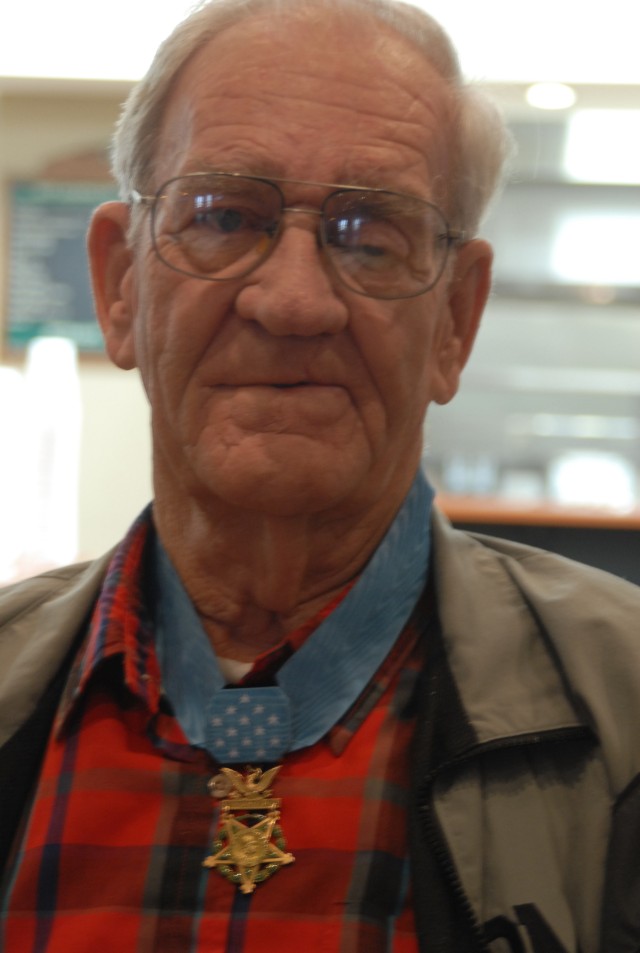
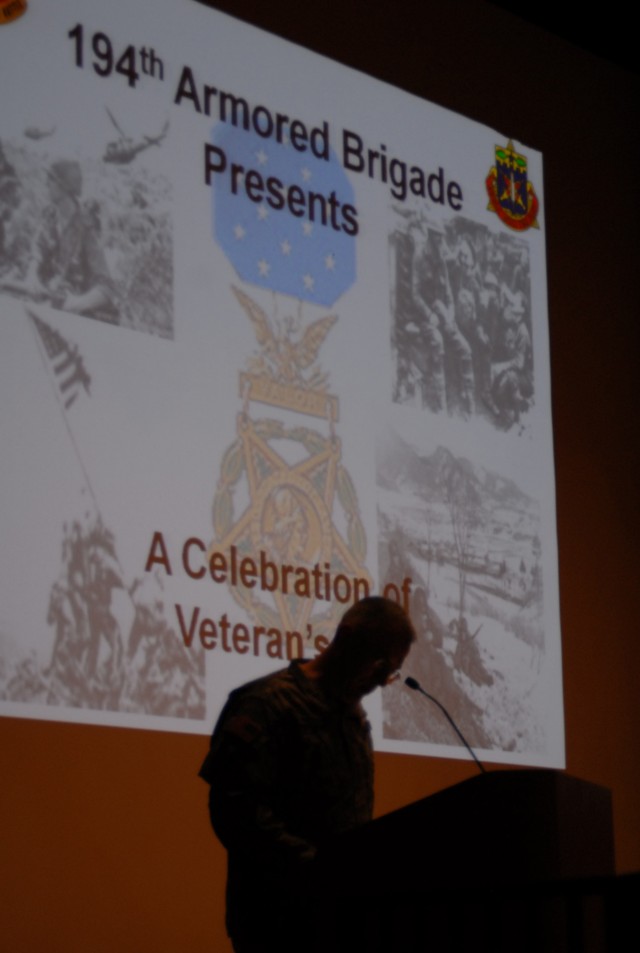
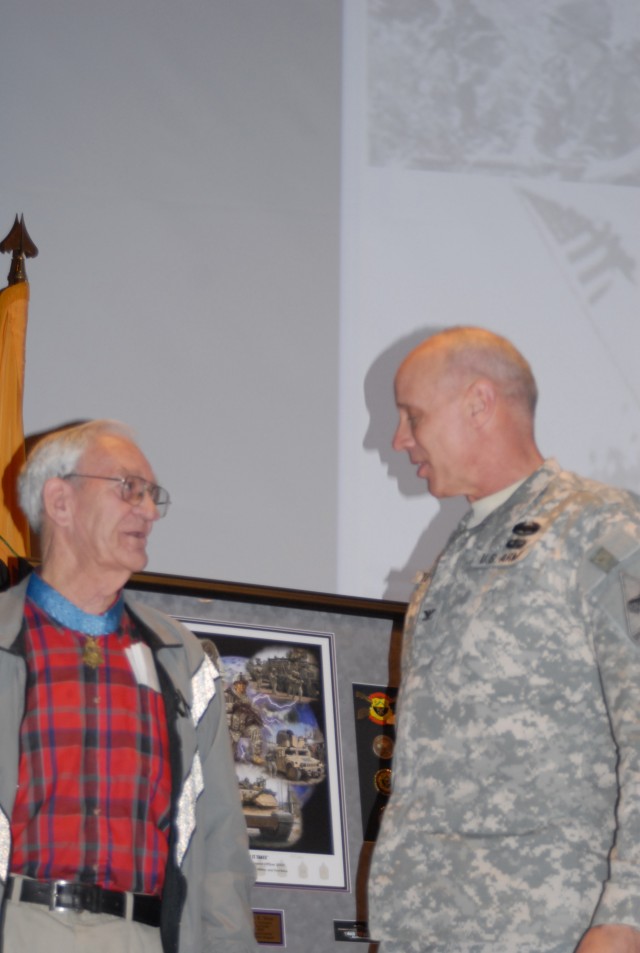
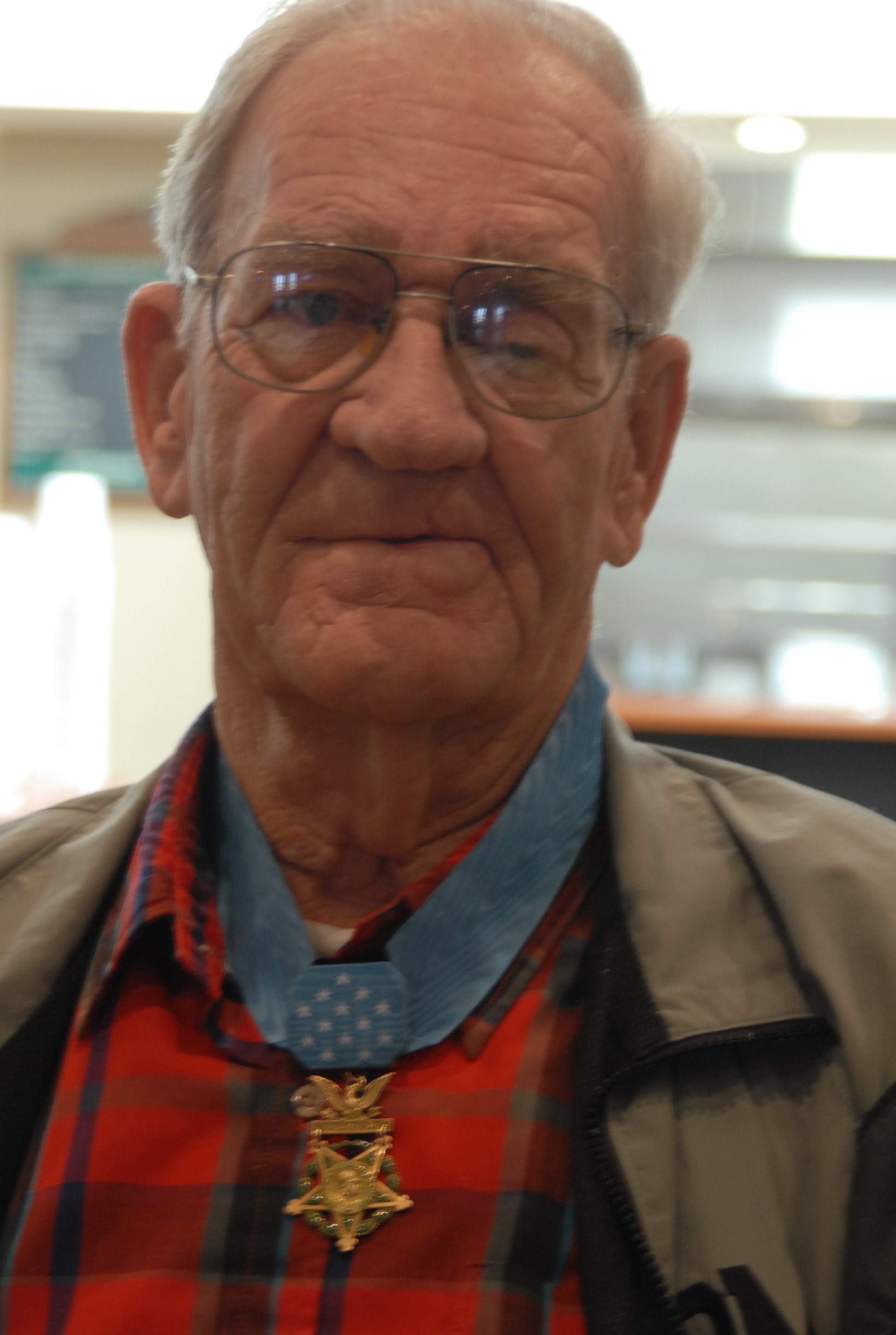
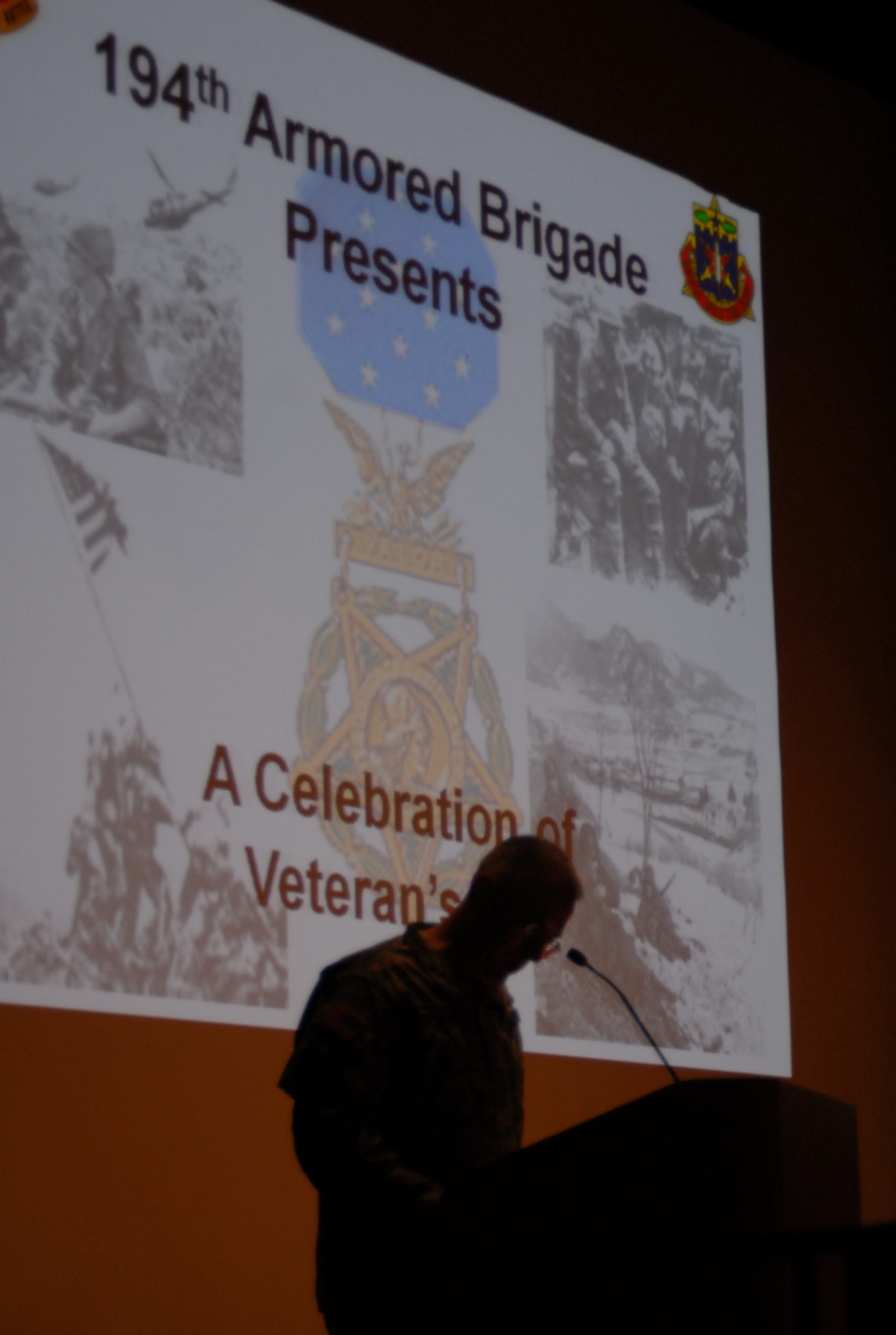

Social Sharing